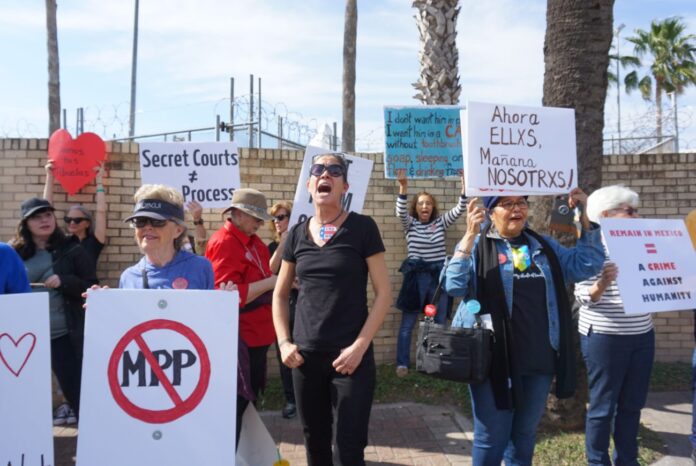
An appellate court ruled Tuesday that a lawsuit filed against the Trump administration seeking to end “fast-track” deportations without legal process can continue, but also overturned an earlier injunction that barred the administration from doing so, court records show.
Last August, the American Civil Liberties Union together with La Unión del Pueblo Entero, a local immigrant-advocacy group based in San Juan, the American Immigration Council and Simpson Thacher & Bartlett LLP filed a federal lawsuit in Washington on behalf of immigrant community organizations Make the Road New York, and We Count!
The lawsuit was filed Aug. 6, 2019, roughly two weeks after then-U.S. Department of Homeland Security Acting Secretary Kevin McAleenan announced the expedited removal of “certain aliens encountered anywhere in the country within two years of illegal entry.”
Specifically, DHS says the expanded rule targets immigrants across the country who cannot prove they have been in the country continuously for two or more years.
Before the designation took effect, expedited removal was limited to a 100-mile zone from the border; to those who arrived by sea; and to those who had been in the country for 14 days or less.
The day before it went into effect, July 22, 2019, McAleenan said the new designation would help the ongoing “humanitarian crisis” along the U.S.-Mexico border.
Beginning in 2019, Central American families — mostly from El Salvador, Guatemala and Honduras — were arriving at ports of entry along the U.S.-Mexico border. Most seeking asylum.
DHS officials said these large groups and the overcrowding created by their arrival left U.S. Border Patrol agents, in addition to Customs and Border Protection, executing more menial tasks while they process them, leaving the border unguarded and less safe.
The DHS designation was designed to “allow DHS to more quickly remove certain aliens encountered in the interior.”
In September 2019, the court granted a preliminary injunction against the administration, effectively blocking the expedited deportations, stating that the “rule was promulgated and made immediately effective without adherence” to the Administrative Procedures Act.
On Oct. 31, 2019, DHS appealed the court’s preliminary injunction, and the case subsequently was moved to the U.S. Court of Appeals for the D.C. Circuit.
The three judges on the appeals court panel ruled on Tuesday that the September decision was erroneous.
Based on oral arguments made March 6, the court ruled that the aforementioned lawsuit was properly brought but pushed back on the claims that the Trump administration had failed to follow procedures under the Administrative Procedure Act, and overturned the lower court’s decision.
In the opinion of the court, which was written by U.S. Circuit Judge Patricia A. Millett and reversed the lower court’s ruling, the judge states that “Congress committed the judgment whether to expand expedited removal to the Secretary’s ‘sole and unreviewable discretion,” and thus not subject to the APA’s standards for decision making.
This new ruling would allow DHS to move forward with expedited deportations of immigrants across the country who cannot prove they have been in the country continuously for two or more years.
Despite the unfavorable ruling for immigration advocates, attorneys for the ACLU remained optimistic about filing subsequent constitutional claims related to the order.
“This is only the first round in our fight against the Trump administration’s illegal attempt to remove hundreds of thousands of people from the U.S. without any legal recourse. The court ruled that our suit was properly brought and we can now pursue our statutory and constitutional claims in order to once again block this cruel policy,” Anand Balakrishnan, an ACLU attorney who argued the case, said.
Just last week, in a separate case, the Supreme Court held that the administration violated the APA with regard to its decision to the end of the Deferred Action for Childhood Arrivals, or DACA.



